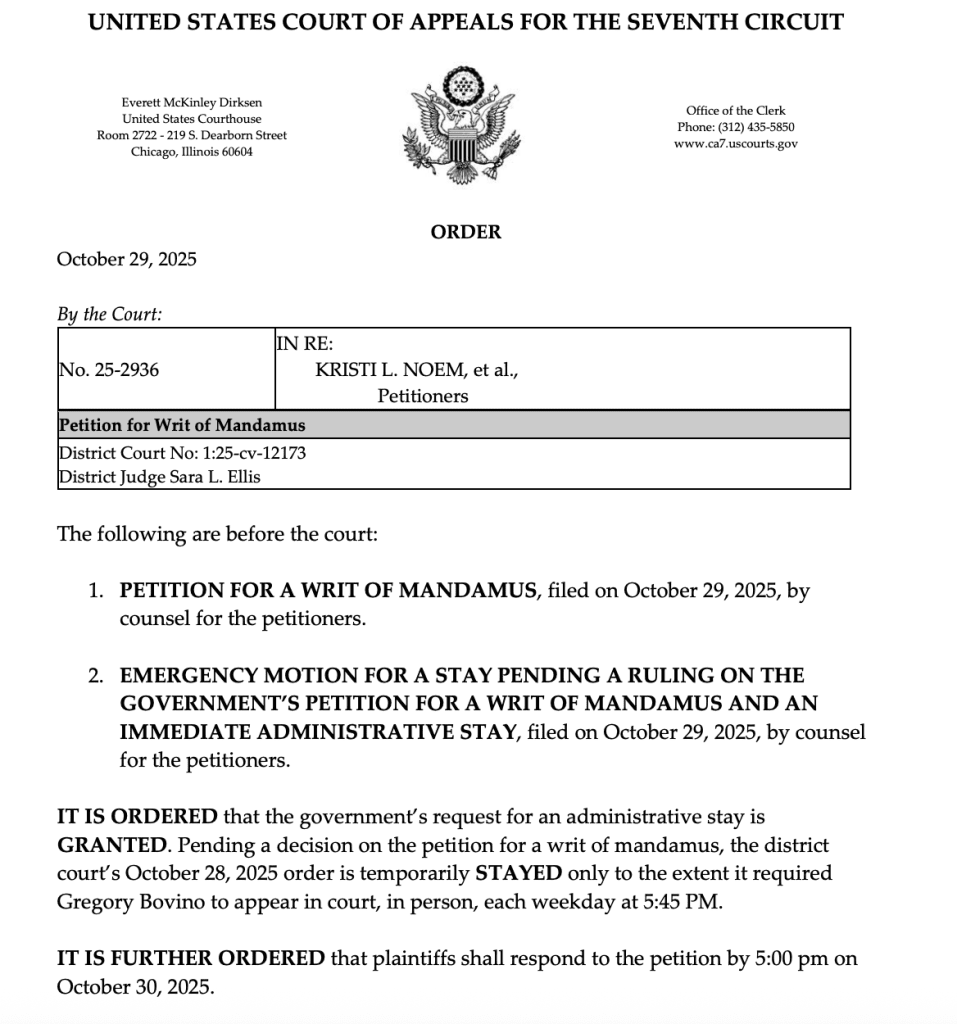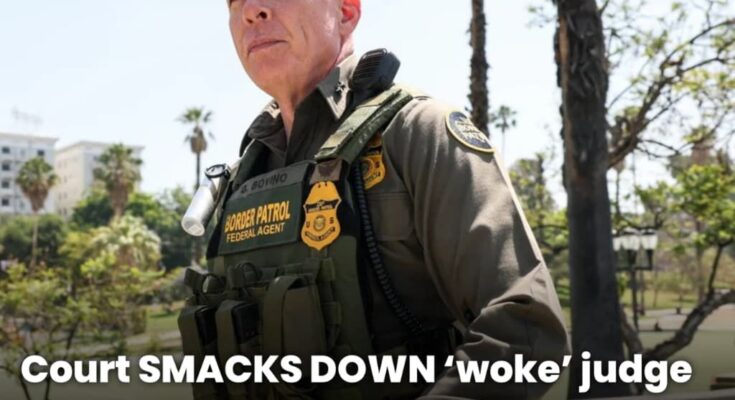7th Circuit Blocks Order Requiring Commander Greg Bovino to Report Daily to Judge Sara Ellis Amid “Operation Midway Blitz” Probe
The federal judiciary in Chicago issued a dramatic intervention this week when the United States Court of Appeals for the Seventh Circuit granted an emergency stay on an unprecedented order requiring Gregory Bovino, commander-at-large of the U.S. Border Patrol, to appear in person daily before Sara Ellis, a U.S. district judge, to account for the agency’s conduct in Chicago’s sweeping immigration enforcement campaign.

Judge Ellis had issued an order in late October 2025 that Bovino report to her courtroom every weeknight through early November, following a hearing in which she pressed the commander about alleged excessive-force tactics during “Operation Midway Blitz,” the Trump-era immigration operation criticised for the use of tear gas and aggressive tactics in residential neighbourhoods. The order also required agents under his command to wear body-worn cameras, display identifiers, and deliver detailed documentation of use-of-force incidents.
But the 7th Circuit, responding to an emergency motion filed by the United States Department of Justice, found that the daily-appearance requirement “significantly interferes with the quintessentially executive function of enforcing the Nation’s immigration laws,” and granted a temporary injunction. Bovino will no longer be required to attend the first scheduled check-in while the court reviews the government’s petition. Other parts of Judge Ellis’s ruling, including the requirement for body-worn cameras, remain in effect.

Supporters of the stay say it preserves the separation of powers by shielding a senior enforcement official from what amounts to judicial micromanagement of operational decisions. In public comments, Bovino welcomed the pause and vowed that agents under his command will continue the mission. Opposition leaders, however, say the judge’s oversight was crucial, citing videos of federal agents firing tear gas near a Halloween parade and dozens of arrests under the crackdown.
In Chicago, the case has become a flashpoint in debates over federal immigration policy and local community impact. With more than 1,800 arrests and multiple allegations of force in largely Latino neighbourhoods, the city and several media-organisations sued the federal government, accusing agents of targeting civilians and suppressing press coverage. Judge Ellis’s original order was seen as her attempt to impose transparency and accountability during the campaign.
The appeal makes clear that a broader legal battle is now underway. The 7th Circuit has asked the original plaintiffs to respond to the government’s writ of mandamus petition, and the next phase of legal argument will determine whether the daily check-ins—or any similar court-ordered supervision of a senior executive official—can stand. Legal experts note that precedent historically grants wide discretion to law-enforcement agencies in operations, but also allows judicial review when constitutional rights are implicated.
For the people on the ground, the ruling carries real significance. Residents of the affected Chicago neighbourhoods and defenders of press freedom say the pause means less oversight at a critical time. Federal agents and their supporters, on the other hand, say the daily-reporting requirement would have hindered enforcement and set a troubling precedent for judicial oversight of operational decision-makers.
In the months ahead the case will test how far courts can go in supervising federal law-enforcement operations and how much room remains for judges to demand daily accountability from top officials. The intersection of immigration, enforcement tactics, local rights, and federal authority has rarely been so sharply outlined. And while the pause is temporary, the implications for how agencies conduct sensitive operations — and how courts police them — may unfold for years.

